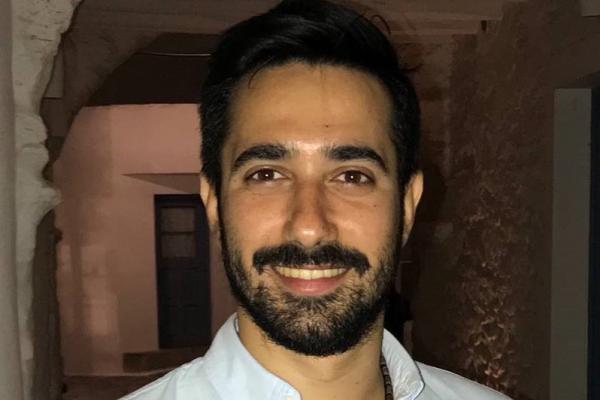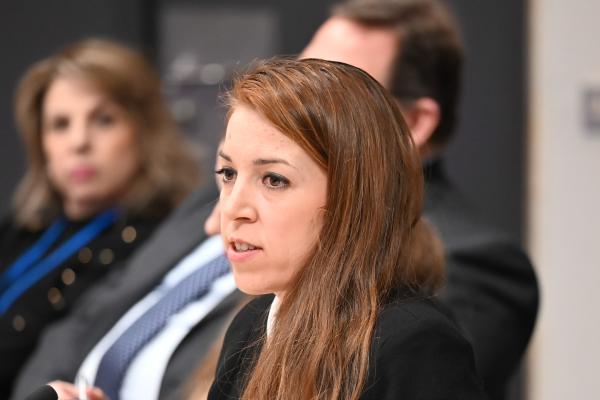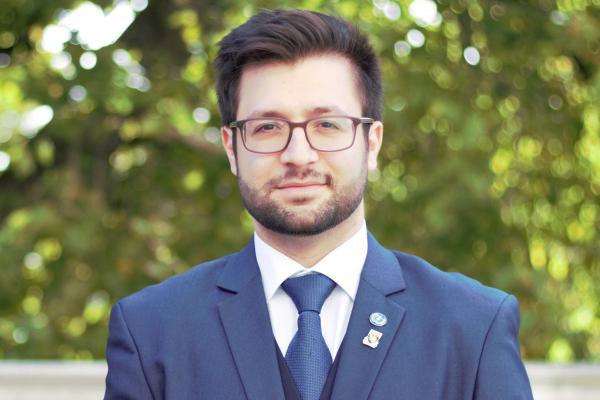About the Initiative
The European Doctoral School on the Common Security and Defence Policy (CSDP) is an initiative launched in 2017 by volunteer institutions and the European Security and Defence College to develop a range of training and provide support for doctoral research on the CSDP in the EU.
Its objective is to develop a critical mass of scientific and academic expertise that brings together supervisors and mentors and promotes the exchange of knowledge, skills and competences on European security and defence with a view to providing support for PhD level research reflecting on the CSDP.
It offers a specialised training program supplementary to the courses organised by its network institutions in their doctoral curricula and supports multi-disciplinary doctoral researches with relevant European training and environments in the following areas:
- Cyber, new technologies and security in the CSDP context
- Critical infrastructure, personnel and logistics in CSDP
- Defence industry and capabilities for the CSDP
- Partner capacity-building and external relations in the CSDP context
- History, conflict studies, concepts, values and ethics of the CSDP
- Defence economics, financing, education, training and leadership in the CSDP context
- Governance, management, decision-making and deployment for CSDP
Chair and Configuration Support
 Chair - Prof Dr Foteini Asderaki
Chair - Prof Dr Foteini AsderakiProf Asderaki is a Professor of European Integration and a Jean Monnet Chair on European Union’s Education, Training, Research and Innovation Policies, Vice Chair of the Department of International and European Studies, and Director of the Msc in International and European Studies, University of Piraeus, Greece. She holds a PhD with distinction in Political Sciences issued by the National and Kapodistrian University of Athens.
Prof Asderaki is the director of the Laboratory on Education Policy, Research, Development, and Interuniversity Cooperation. She has served as a Board member and Vice Chair of the Steering Committee for the Group I-Western Europe and North America at the International Bureau of Education, Unesco, Geneva, 2016-17, as a Bologna Follow-Up Group Member 2004-09 and as a member of various European, and national committees in education. She has been the academic coordinator of several European programmes including the European Parliament School Ambassador Programme in Greece.
 ESDC Coordinator - Maria Grazia Romano
ESDC Coordinator - Maria Grazia Romano
Researchers in pursue of their PhD can access a wide range of academic, scientific and practical expertise and specialised training opportunities on the CSDP as well as fellowship programmes offered by institutions of the network.
Candidates for the CSDP Doctoral School programme are eligible if they:
- Are enrolled PhD students of a CSDP Doctoral School’s accredited member institution or have received confirmation of the acceptance by one or more of the CSDP Doctoral School’s accredited member institutions, according to their regulations, to act as leading institution(s) for the doctorate and have paid any fees required under the rules and procedures of those institution(s) or under the inter-institutional agreement in force between them;
- Have completed a scientific higher education degree worth at least 300 ECTS or gained professional experience in a relevant topic, which is recognised as equivalent to this level of degree within the European Higher Education Area;
- Can produce evidence that they master English to level CEFRL C1.
European experts on the CSDP benefit from the networking of academic, scientific and practical expertise and experience meeting in the European Doctoral School in promoting the exchange of information, raising the profile of their work and specific research areas, and helping identify appropriate resources for doctoral students.
Training institutions with Doctoral award capabilities can partner with institutions in the CSDP field, as in‑house academic specialisation in this field represents a significant investment.
The network of the European Doctoral School on CSDP consists of:
- Academic institutions of the European Union accredited to offer doctoral diploma (hereafter 'accredited institutions')
- Research, education and training institutions of European Union Member States not accredited to offer doctoral diploma but which have relevant CSDP expertise and are members of the European Security and Defence College network (hereafter 'non-accredited institutions');
- European Union agencies and bodies that are active in CSDP (hereafter 'nonaccredited institutions').
Only accredited institutions can be designated as 'leading institutions' for supervising candidates' PhD research and award doctoral degrees.
Associate membership can be granted to entities that actively contribute to achieving the objectives of the European Doctoral School on CSDP.
Institutions (including research and training institutes) without Doctoral award capabilities, through their participation, increase recognition of their expertise and experience in the CSDP field. They also benefit from working with doctoral researchers both during and after the research period.
The network of the European Doctoral School on CSDP consists of:
- Academic institutions of the European Union accredited to offer doctoral diploma (hereafter 'accredited institutions')
- Research, education and training institutions of European Union Member States not accredited to offer doctoral diploma but which have relevant CSDP expertise and are members of the European Security and Defence College network (hereafter 'non-accredited institutions');
- European Union agencies and bodies that are active in CSDP (hereafter 'nonaccredited institutions');
- The European Security and Defence College (ESDC).
Only accredited institutions can be designated as 'leading institutions' for supervising candidates' PhD research and award doctoral degrees.
Associate membership can be granted to entities that actively contribute to achieving the objectives of the European Doctoral School on CSDP.
How to participate?
- Required steps for PhD Students
Researchers in pursue of their PhD are invited to apply by submitting to the ESDC’s Secretariat an application form and the documents referred in the respective checklist.
- Required steps for Institutions
Training institutions with Doctoral award capabilities and without may apply for membership to the Doctoral School Working Group. Please use the contact form on the bottom on the page to contact us.
Other entities willing to actively contribute to achieving the objectives of the European Doctoral School can propose projects for joint actions to the Doctoral School Working Group. Please also use the contact form.
- European CSDP experts
European experts on the CSDP, whose Institutions are members of the network, can contribute to the initiative by participating either as research mentors or as supervisors. Membership application should be sent to the Doctoral School Working Group in the format of the datasheet.
For further questions, please use the contact form below.
Doctoral School Courses Curricula

- General publications
- 4 September 2025

- General publications
- 4 September 2025

- General publications
- 4 September 2025

- General publications
- 4 September 2025







